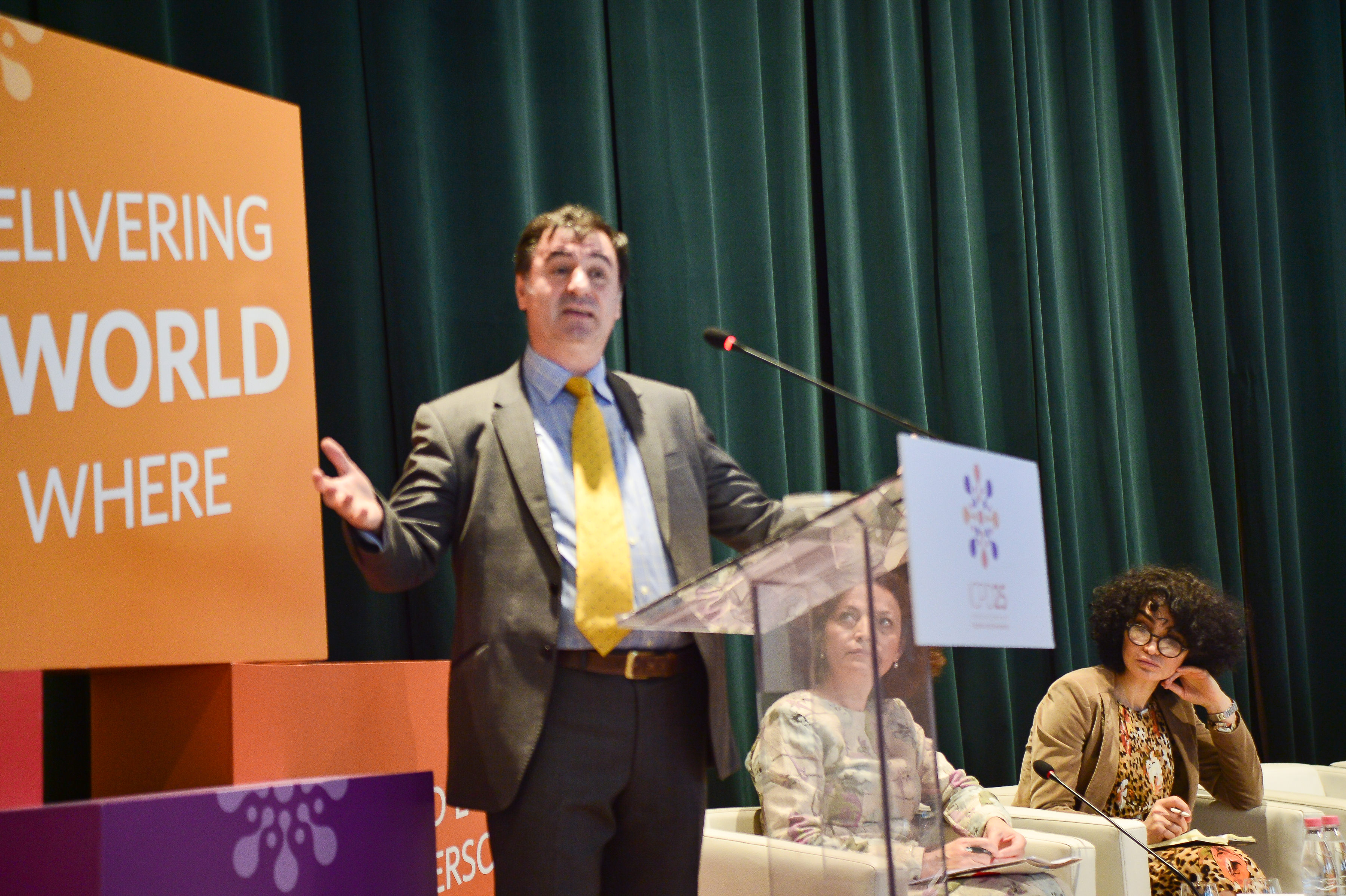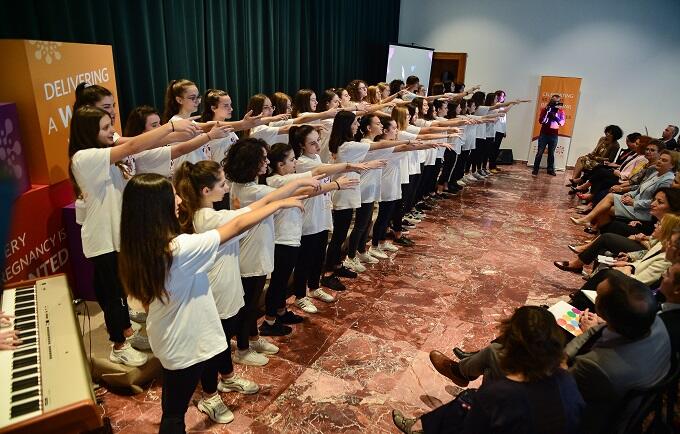Tirana - UNFPA in partnership with the Parliamentary Subcommittee on Gender Equality and Prevention of Violence against Women organized the "National Consultation on Demography and Gender Disparities in Albania", from Cairo 1994 until today - in the framework of the 25th anniversary of the International Conference on Population and Development (ICPD25).
Representatives from government and non-government institutions, INSTAT, academia, activists and experts in the field, international development partners and representatives of the diplomatic corps were present.
Demographer and Assistant Professor Arjan Gjonca gave an overview of the progress made in Albania since Cairo 1994 and the dynamics of the Albanian population today, raising three main issues:
1. Gender equality and women's empowerment.
2. Combating violence and harmful practices such as early/child marriages and sex selection.
3. Development and proper implementation of inclusive population policies.

Demographer & As. Prof Arjan Gjonçaj, London School of Economics
Albanian population has reduced in size since the collapse of socialist state in 1990, with population reduced in size from 3.2 million in 1989 to 2.8 million in 2011 and estimated to 2.6 million in 2018, from a high annual growth rate in the 1980s of 2.06% per year into a negative growth in 2000s of -0.91%.
The country is experiencing a new demographic regime of long life with life expectancy at birth of females of 80.6 years and for males of 77.4 years by 2018, and low fertility, with total fertility rate of 1.4 children per woman by 2018.
However, the main demographic determinants of population dynamics in Albania remain by far the unprecedented rate of migration. The reduction of population from 3.2 million in 1989 to the estimated value of 2.6 million in 2018 is due to emigration with more than one third of the 1989 population leaving the country by 2011.
This has affected mainly he active population of ages 15-59, thus creating for the first time in South Eastern Europe a shortage of labour supply not allowing Albania to make use of the demographic dividend.
Migration has caused not just the negative growth of population of Albania, but has also been the driving force for the country to experience an ageing population, faster than expected with the population over 60+ increasing to 14% in 2011 and well over 25% by 2040.
In terms of mortality the country continues to outperform its level of economic development by being considered a “good health and low cost country”.
Demographic developments in Albania have always had a gender bias. Albania continues to have a sex imbalance at birth of 110 male birth to 100 female ones, suggesting a wide application of sex selective abortion.
While achievements in terms of female education and labour market integration have been commendable for females in Albania, the society remains at large patriarchal thus affecting the household roles and female empowerment at home and in some aspects of the society.
While the UN Resident Coordinator in Albania, Mr Brian Williams, said: "We have to move away from the use of a language of crisis & turn to the language of policy development & proper implementation for issues such as ageing, gender equality youth involvement & migration".

Brian J. Williams, Resident Coordinator - UN Albania
The future policies in the country should address important population issues that aim at:
- The reduction of emigration of young population from the country, through development of policies focusing largely on youth employment and opportunities.
- Improving dramatically the health care and social care for the elderly, as the breaking of traditional social networks together with faster population ageing will create a burden on health and social care.
- Improving women’s empowerment in the society, not just their education and employment, but also through improving the position of their household decision making.
A particular urgent focus should be given to the complete elimination of sex imbalances at birth through a tougher new legislation and proper implementation of the existing one on selective abortion.

Albanian Parliament Members
All participants, including members of the Albanian Parliament, civil society activists, young people and experts in the field, committed themselves to contribute to the development and implementation of these policies. "'Care' is the word often used today. We all here are committed to care for young people, for girls and women, and for the elderly, through proper policies and services for all," UNFPA Albania Director, Rita Columbia, stated in her concluding remarks.


